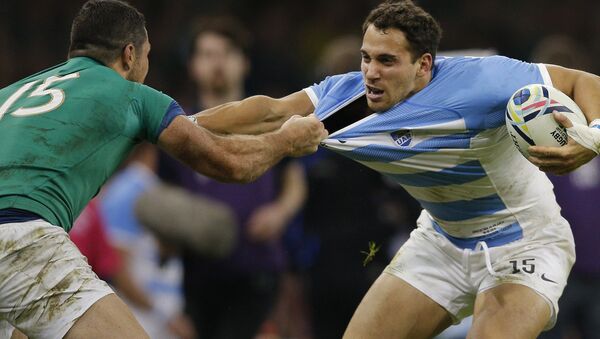On Monday, the Premiership’s administrators controversially voted to slash the league’s salary cap (the maximum amount players can be paid) by 1.4 million pounds, a move which is planned to come into effect by the start of the 2020-21 season.
The decision came despite the fact that a large proportion of Rugby stars in the English top flight agreed to take pay cuts of up to 25% earlier this season, in response to the financial damage brought about by the coronavirus pandemic.
According to BBC Sport, the English Rugby Players' Association will begin exploring the possibility of taking legal action against the Premiership if it doesn’t reconsider its wage cap reduction.
In a statement to the press, Mark Lambert, chairman of the Rugby Players' Association, outlined that he and his organisation are against any form of pay cuts.
"From the outset of this crisis, there has been an absolute disregard for the players and the values of the game. The RPA position remains unequivocal: the RPA is opposed to permanent cuts for our members", Lambert stated.
The chairman added that he feels that the English rugby premier league’s management should have held more discussions with players before going ahead with their adjustment to the maximum salary threshold.
"This latest situation could have been entirely avoided with a collaborative and transparent approach and we now find ourselves heading towards a significant legal dispute unless meaningful and genuine dialogue takes place urgently", Lambert said.
Lambert concluded by saying that low wage caps make professional rugby players feel undervalued.
"To be clear, this is a totally unacceptable way to operate. Players are the lifeblood of the game and should be treated with respect. Players should not engage with this approach. The RPA will continue to fight for our members throughout this crisis", he added.
Money was also a key theme in the recent battle to be elected chairman of the World Rugby Federation, contested between Argentine Agustin Pichot and Englishman Sir Bill Beaumont.
Pichot campaigned on a platform of distributing wealth from bigger rugby federations to their fledgling counterparts, but was ultimately defeated by Beaumont, who maintained the backing of the game’s traditionally dominant sides, such as Australia, New Zealand, England, South Africa, and France.


